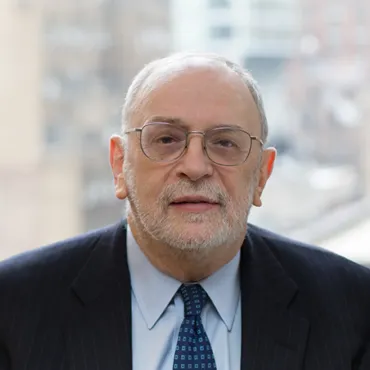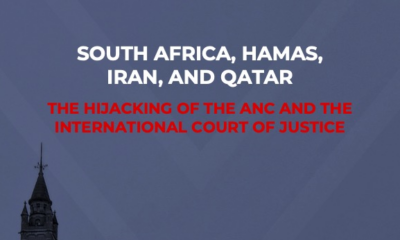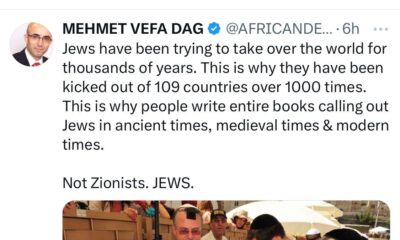
OpEds

It’s a perfect storm. Here’s how to fight it
Since the massacre in Israel on 7 October, there has been a surge in antisemitic incidents without precedence for decades. The numbers are astonishing.
In the United States, incidents have increased more than 300% from last year. In Germany, the increase from last year in the first month was 320%. In the United Kingdom, for the past month and a half, there were 1 563 incidents, a 546% increase, the highest total for such a time reported.
In France, there were 1 518 incidents, while Australia reported a 591% increase. And in South Africa, there were 41 antisemitic incidents in October, a significant increase.
Many Jews are so fearful, they are hiding any symbols of their Jewish identity. Compounding the fear is the explosion of anti-Israel protests featuring the genocidal phrase, “From the river to the sea.”
Many factors come into play to explain this unexpected turn. Even before recent events, antisemitism had been significantly on the rise for several years.
It starts with the shame that emerged following World War II when the first pictures of Auschwitz surfaced. Antisemitic attitudes that had characterised the Western world for millennia, of course, didn’t disappear. But the realisation that antisemitism deeply embedded in society had led to the murder of six million Jews had an impact on the acting out of antisemitism for decades. Aside from the Soviet Union and the Middle East, antisemitic incidents as a result were somewhat inhibited.
As many years passed and new generations emerged, the impact of the Holocaust diminished and with it the shame about exhibiting Jew hatred. At the same time, other factors contributed to a rise. Political polarisation and the weakening of the political centre opened a path toward extremist ideas and conspiracy theories which inevitably fall heavily on Jews, a favourite of conspiracy theorists.
White supremacists on the right and anti-Zionists on the left suddenly had new openings and supporters in a heavily charged political climate. Added to these factors was the emergence of social media and the internet as preferred forms of information and communication. Extremists and antisemites who always struggled to find vehicles to convey their hate to the masses and to organise antisemitic activity, now had a perfect weapon to spread their hate.
And, of course, the ideology of antisemitism which pervaded Western societies for centuries was still there under the surface. Education about the Holocaust and changes for the better such as the transformation of the Catholic Church from its historic attitudes toward the Jewish people played a role in the years after World War II in improving attitudes toward Jews. Still, something that was so deeply rooted historically couldn’t simply disappear.
And then came 7 October. Prior to that day, there had been many discussions reflecting the polarisation in society, particularly in America, as to which was a greater threat to Jews, antisemitism from the right or from the left. Often political figures would attribute the threat as coming from the other side. More objective observers would note that there was no monopoly on antisemitism, it could come from the right, it could come from the left, it could come from majority communities, it could come from minority communities.
The shock of what has taken place, particularly in the United States, but elsewhere as well, has stunned many in spite of the fact that awareness and concern about Jew hatred had already been growing significantly before that day.
A series of factors have come together since to create a perfect storm for antisemitism.
Anti-Israel forces around the world had been on the defensive in recent years because of the Abraham Accords and potential for a Saudi deal, which threatened those who sought to delegitimise Israel. Now there arose the possibility that it could all fall apart after the massacre and Israel’s reaction. This was an incentive for action by antisemites.
Similarly, while we focused on the barbarism of Hamas, enemies and critics of Israel emphasised a new vulnerability of the Jewish state which catalysed their attacks on Jews and Zionists.
Thirdly, every time there was a Middle East conflict, antisemitic incidents would increase. This being by far the most significant event in the sordid history of Hamas, it multiplied that trend manifold. No distinction was made between Israel and Jews around the world.
Fourth, unlike the horrific antisemitic violence from the right, this mostly left-wing hate was taking place where Jews lived, either on campuses with many Jewish students or in neighbourhoods with significant Jewish populations. Hence it wasn’t only the numbers of incidents but the proximity which heightened Jewish fears and insecurity.
Fifth was the shock of where the antisemitism was coming from – individuals and groups who were seen as allies, as Senator Chuck Schumer pointed out the other day. The sense of betrayal is profound, particularly in the reaction of young people on campus and among minority groups.
And let’s not forget that around the world, classical right-wing antisemites who have been less the focus since 7 October, haven’t gone away either.
Having said all this, we must keep in mind that not everything is dark. The resilience of the Israeli people; the coming together of Jews everywhere; the support for Israel by many Western governments; public opinion in the United States; and the bravery and idealism of the Israel Defense Forces, all give us hope going forward.
So what should we do?
First, while never forgetting how serious and disturbing these developments are, we need to emphasise as well appropriate reasons for hope. We need to strengthen the political centre in democratic societies and not let the extremes predominate, which always leads to Jew hatred.
Along those lines, we should try to depoliticise the struggle against antisemitism. We need to continue to seek out allies on common issues even if we’re dismayed by their lack of support. And we need to be open to those on the right who haven’t always been natural allies on many social and political issues but who are largely standing with Israel and the Jewish people in this time of crisis.
At the same time, we also need to be frank, like Senator Schumer, in expressing our disgust for the lack of support by groups whom the Jewish community has stood with through the years in their own particular struggles.
Most of all, we need to convey the view that antisemitism isn’t just a Jewish problem. The failure to address this surge will have a dramatic impact on democratic societies. Good people need to wake up and stand up.
Kenneth Jacobson is the Anti-Defamation League’s (ADL’s) deputy national director and the longest serving ADL professional, having been there for 52 years. He writes extensively on ADL issues regarding antisemitism, Israel, and issues of hate and discrimination.











anon
December 7, 2023 at 5:03 pm
The scariest thing of all is in South Africa the government will not condemn anti-Semitic activity and crimes whereas in places like UK, USA, NZ, Australia, Europe, Jews will have a stronger legal support system. Here, I fear if we don’t protect ourselves, nobody is going to protect us. Time to start a mini army.
Hank
January 8, 2024 at 7:19 pm
Coming from a Christian background, I feel not much is being done by then. I Hank Pretorius stand firm behind the people of Israel,and Jews around the world. We have a government who is in love with the wrong crowd so we must start to mobilize.
Choni Davidowitz
January 22, 2024 at 9:12 am
AntiSemitism is God’s “weapon” to entice and incentivise Jews to leave their exilic graveyards, and come to their only safe place- Israel.